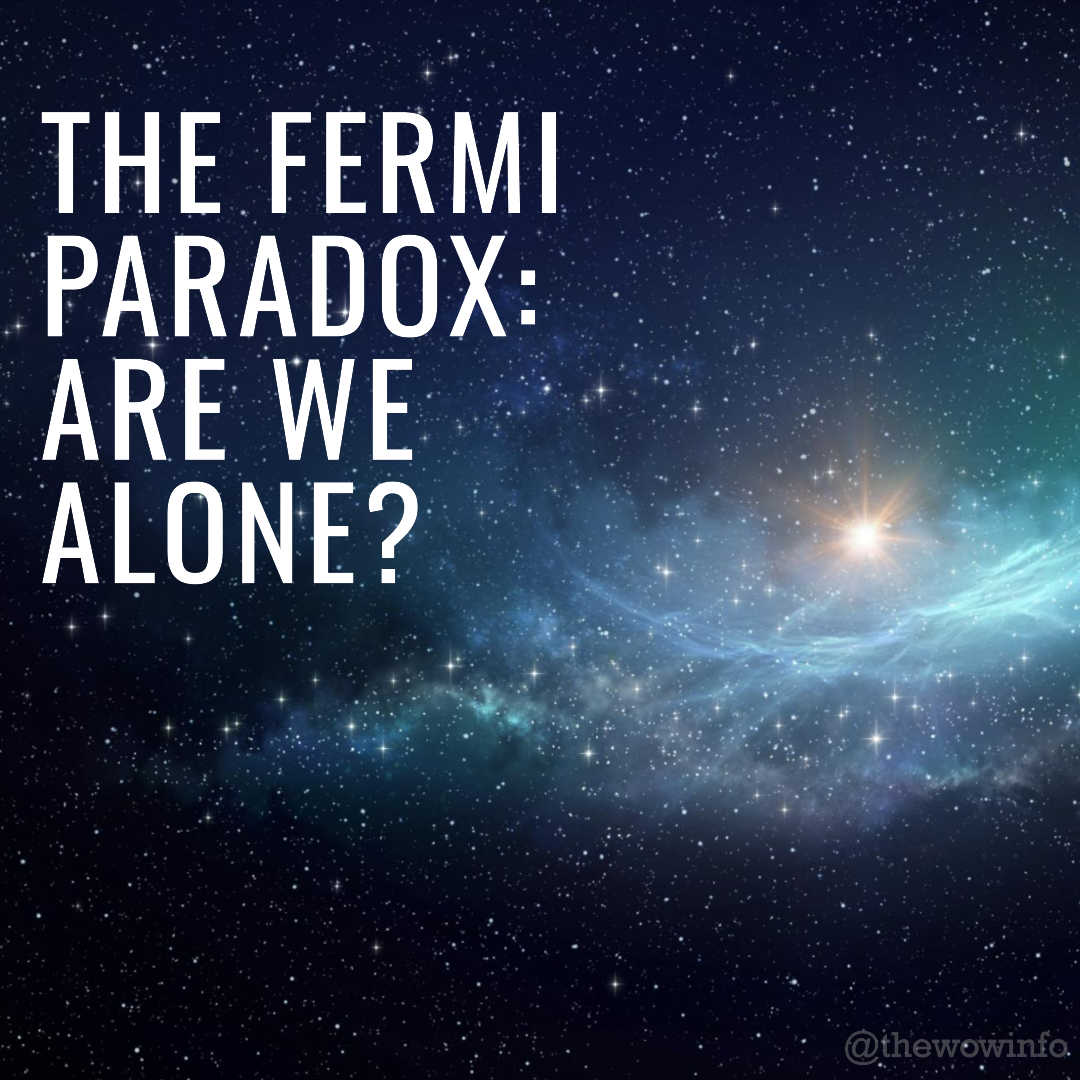The universe is an awe-inspiring expanse, with billions of galaxies, each containing countless stars, many of which have their own planetary systems. This fact alone raises a profound question: Where are all the extraterrestrial civilizations?
The Fermi Paradox, named after physicist Enrico Fermi, encapsulates this perplexing contradiction between the high likelihood of intelligent life in the universe and the lack of evidence for its existence.
In this blog, we'll explore the Fermi Paradox, its possible explanations, and the ongoing search for extraterrestrial life.
The Basics of the Fermi Paradox
Enrico Fermi famously posed the question during a lunchtime conversation in 1950: "Where is everybody?" Fermi's reasoning was simple yet profound. Given the vast number of stars, many of which are much older than our own sun, and the potentially large number of planets, it seems highly likely that at least some of these planets would develop intelligent life. If this is the case, then why haven't we detected any signals or evidence of their existence?
The Fermi Paradox encapsulates this contradiction and has spurred a wide range of hypotheses and discussions among scientists, philosophers, and science fiction enthusiasts. Let's delve into some of the possible explanations for the apparent absence of extraterrestrial civilizations.
Possible Explanations
-
Rare Earth Hypothesis:
One possible explanation is that the conditions required for the emergence of intelligent life are incredibly rare. Earth might be a unique case where a series of fortuitous events, including the right combination of planetary size, distance from the star, presence of liquid water, and a stable environment, led to the development of complex life. If these conditions are indeed exceptionally rare, then the Fermi Paradox might be resolved by the fact that intelligent civilizations are exceedingly rare. -
Great Filter:
The concept of the Great Filter suggests that there is a significant hurdle or obstacle that prevents the development of intelligent civilizations beyond a certain point. This filter could be a step in the evolutionary process, such as the emergence of multicellular life, the transition from non-life to life, or the challenges posed by technological advancement. If the Great Filter lies ahead of us, it could mean that the development of advanced civilizations is an incredibly unlikely event. -
Technological Isolation:
It's possible that advanced civilizations do exist, but they are technologically isolated. They might be using communication methods that we are unable to detect, or they may have chosen to remain hidden for reasons unknown to us. Additionally, the vast distances between stars and the limitations of our current technology could make it extremely challenging to establish contact. -
Self-Destruction:
Another sobering possibility is that intelligent civilizations tend to self-destruct before they can make contact with others. This could occur through nuclear war, ecological collapse, or the unintended consequences of advanced technologies. If this is the case, civilizations might rise and fall, leaving behind no traces of their existence.
The Search for Extraterrestrial Life
Despite the lack of direct evidence, scientists continue to search for extraterrestrial life through various avenues. The search includes the study of exoplanets, the exploration of Mars and other celestial bodies in our solar system, the investigation of extremophiles on Earth (organisms that thrive in extreme environments), and the search for potential biosignatures in the atmospheres of distant planets.
Projects such as the Search for Extraterrestrial Intelligence (SETI) involve scanning the skies for radio signals or other technological signs of intelligent civilizations. The discovery of exoplanets in the habitable zone of their stars (the "Goldilocks" zone where conditions are right for liquid water) has fueled optimism about the possibility of finding extraterrestrial life.
Conclusion
The Fermi Paradox is a thought-provoking and fascinating question that forces us to confront the vastness of the universe and our place within it. While we have yet to discover definitive evidence of extraterrestrial civilizations, the quest for knowledge continues, driven by curiosity and the desire to answer one of the most intriguing questions in human history: Are we alone in the cosmos, or is there intelligent life waiting to be discovered? Only time and further exploration will reveal the answer to this cosmic riddle.
Discover More
Most Viewed
Christmas is a season of joy, love, and traditions. And what better way to get into the holiday spirit than through timeless carols? These musical gems have been bringing people together for generations. Here’s our ranked list of the Top 10 Christmas Caro…
Read More

















